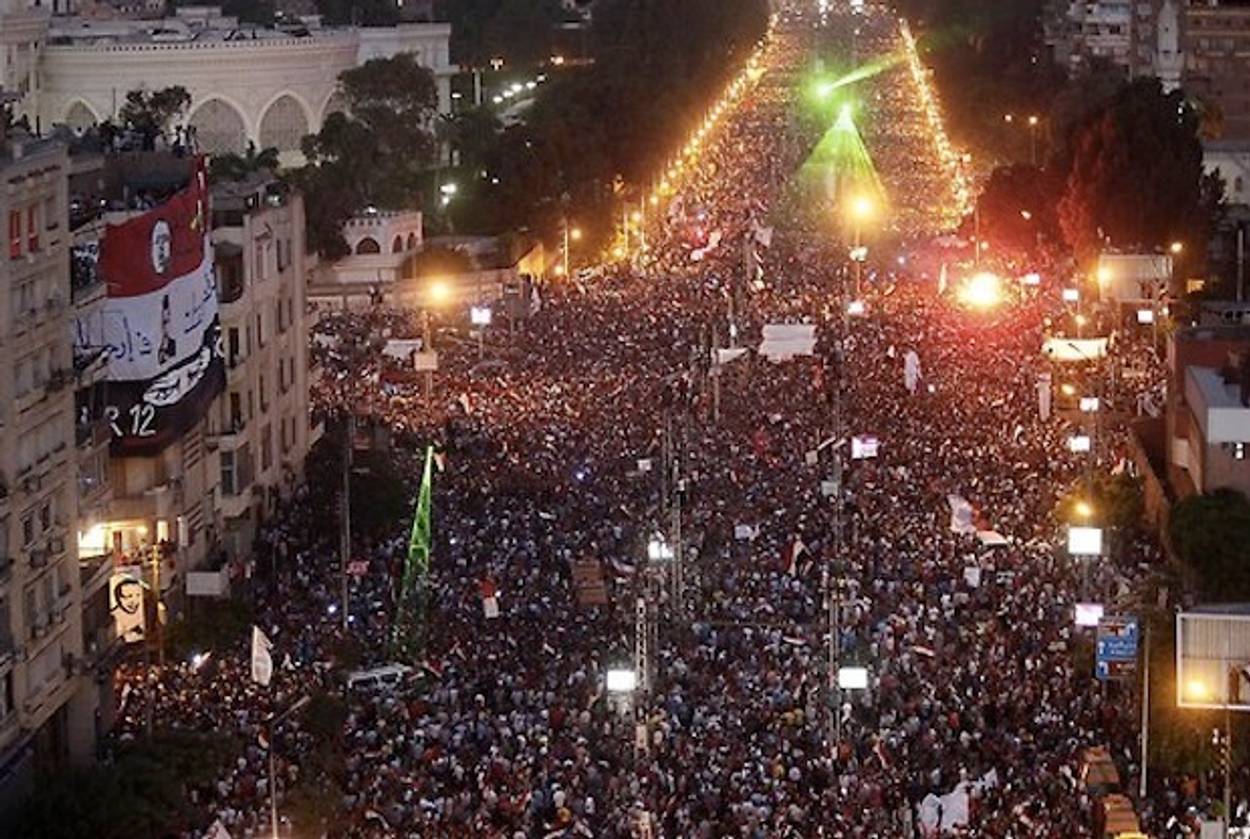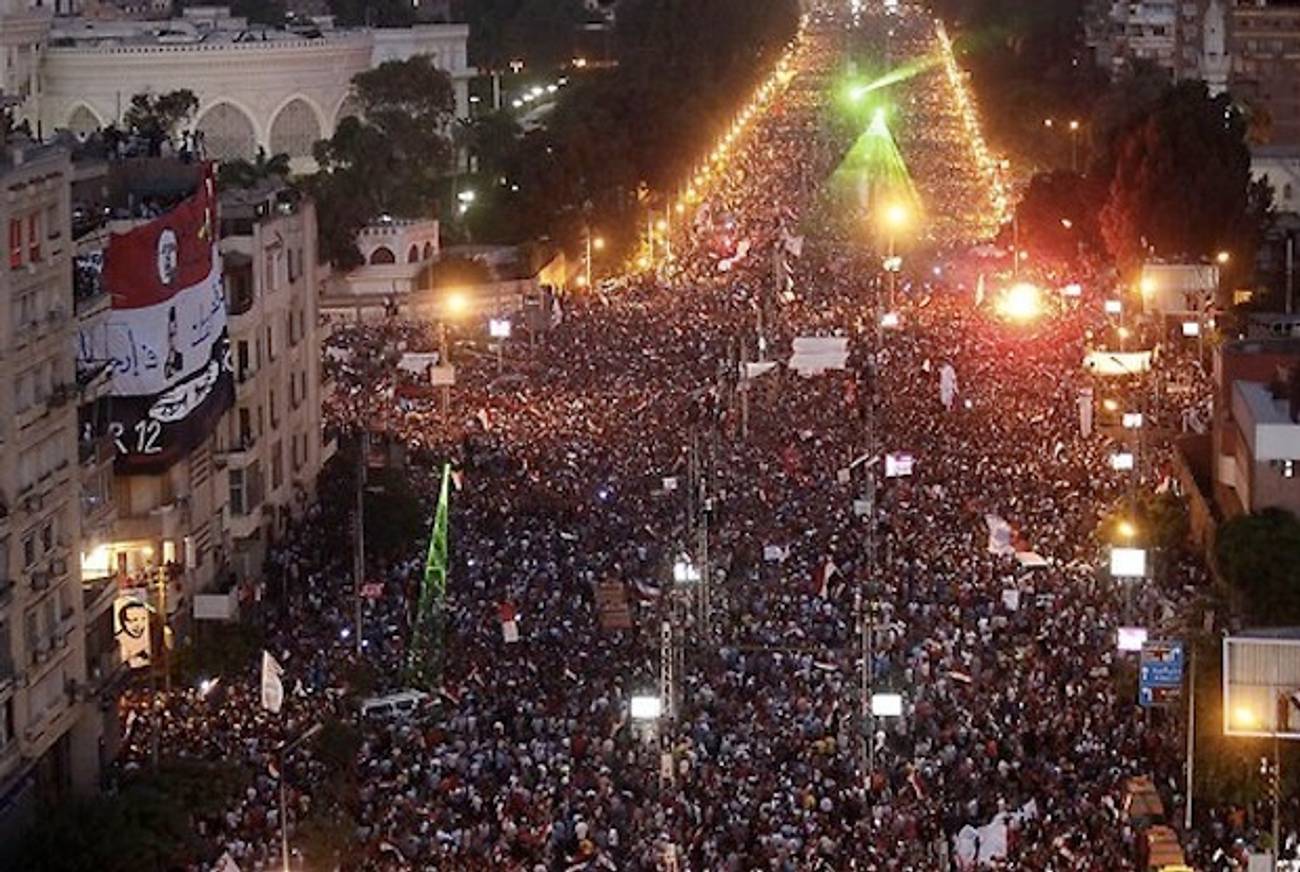What You Need to Know About Egypt’s Protests
Violence also claims a Jewish American college student in Alexandria




Over the weekend, millions gathered in the streets of the Arab World’s most populous country to protest against Egyptian President Mohamad Morsi, whose year-long reign has been characterized by a similar cronyism and disregard for human rights that Egyptians sought to rid themselves of when Hosni Mubarak was ousted in 2011.
Demonstrators said they were angry about the near total absence of public security, the desperate state of the Egyptian economy and an increase in sectarian tensions. But the common denominator across the country was the conviction that Mr. Morsi had failed to transcend his roots in the Brotherhood, an insular Islamist group officially outlawed under Mr. Mubarak that is now considered Egypt’s most formidable political force. The scale of the protests across the country delivered a sharp rebuke to the group’s claim that its victories in Egypt’s newly open parliamentary and presidential elections gave it a mandate to speak for most Egyptians.
There were scores of injuries across the country as well as 16 reported fatalities, including the death of Andrew Pochter, a 21-year-old American Jewish college student, who was stabbed while attending a demonstration in Alexandria on Saturday.
Active in a Jewish student group at Kenyon College in Gambier, Ohio, where he would have been junior in the fall, Pochter traveled to Egypt this summer on an internship to teach English to Egyptian 7- and 8-year-olds. He also hoped to improve his Arabic. He planned to spend the spring in Jordan, according to a family statement and a close friend.
Pochter’s family said he “went to Egypt because he cared profoundly about the Middle East. He had studied in the region, loved the culture, and planned to live and work there in the pursuit of peace and understanding.”
With protestors vowing to hold firm in the streets, President Morsi and the Muslim Brotherhood seem stiff-necked and unprepared for the moment. As the Egyptian military cautiously straddles the fence, it’s difficult to tell where this is all heading.
Writing in the New Republic last week, Eric Trager warned that it could very ugly.
The only foreseeable way that mass protests could topple Morsi is if things get so violent after June 30 that the military is impelled, against its better instincts, to intervene to stop what would have to be unprecedented bloodshed. But it likely wouldn’t end there: An intervention of this sort would bring the military into direct confrontation with Islamists, some of whom would take up the very arms that they were prepared to use exactly a year ago, when they believed that Egypt’s then-ruling junta might deny Morsi the presidency. This scenario is one that the military knows and desperately wants to avoid, which is why Morsi will probably still be Egypt’s president on July 1.
Adding to spectre of things turning ugly is the possibility that it will happen quickly. The Muslim Brotherhood headquarters have been ransacked and the protesters have demanded that Morsi resign by tomorrow afternoon. We don’t what the “or else” is here, but it can’t be good.
We’ll keep you posted.
Adam Chandler was previously a staff writer at Tablet. His work has appeared in the New York Times, the Wall Street Journal, the Atlantic, Slate, Esquire, New York, and elsewhere. He tweets @allmychandler.